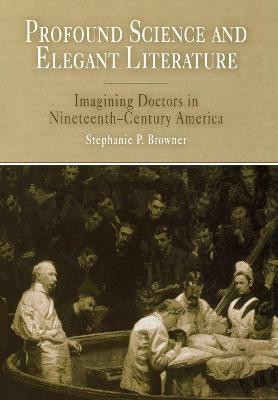Profound Science and Elegant Literature(English, Electronic book text, Browner Stephanie P.)
Quick Overview
Product Price Comparison
In 1847, at the first meeting of the American Medical Association, the newly elected president reminded his brethren that the profession, "once venerated," no longer earned homage "spontaneously and universally." The medical marketplace was crowded and competitive; state laws regulating medical practice had been repealed; and professional practitioners were often branded by their lay competitors as aristocrats bent on establishing a health care monopoly. By 1900, the battles were over, and, as the president of AMA had hoped, doctors were now widely venerated as men of profound science, elegant literature, polite accomplishments, and virtue. In fact, by 1900 the doctor had replaced the minister as the most esteemed professional in the United States; disease loomed larger than damnation; and science promised to manage the discord, differences, and excesses that democracy seemed to license. In Profound Science and Elegant Literature, Stephanie Browner charts this trajectory-and demonstrates at the same time that medicine's claims to somatic expertise and managerial talent did not go uncontested. Even as elite physicians founded institutions that made professional medicine's authority visible and legitimate, many others worried about the violence that might attend medicine's drive to mastery and science's equation of rational disinterest with white, educated masculinity. Reading fiction by a wide range of authors beside and against medical texts, Browner looks to the ways in which writers such as Hawthorne, Melville, Holmes, James, Chesnutt, and Jewett inventoried the collateral damage that might be done as science installed its peculiar understanding of the body. A work of impressive interdisciplinary reach, Profound Science and Elegant Literature documents both the extraordinary rise of professional medicine in the United States and the aesthetic imperative to make the body meaningful that led many American writers to resist the medicalized body.


